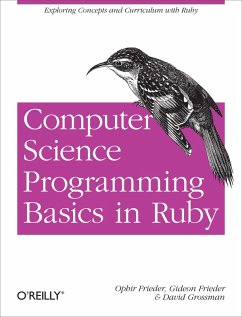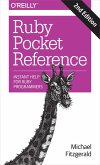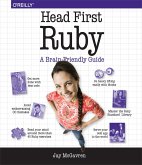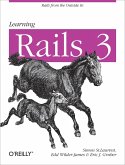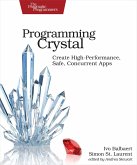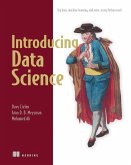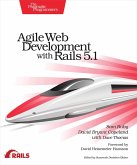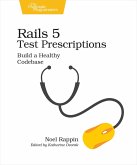If you know basic high-school math, you can quickly learn and apply the core concepts of computer science with this concise, hands-on book. Led by a team of experts, youll quickly understand the difference between computer science and computer programming, and youll learn how algorithms help you solve computing problems.Each chapter builds on material introduced earlier in the book, so you can master one core building block before moving on to the next. Youll explore fundamental topics such as loops, arrays, objects, and classes, using the easy-to-learn Ruby programming language. Then youll put everything together in the last chapter by programming a simple game of tic-tac-toe.Learn how to write algorithms to solve real-world problemsUnderstand the basics of computer architectureExamine the basic tools of a programming languageExplore sequential, conditional, and loop programming structuresUnderstand how the array data structure organizes storageUse searching techniques and comparison-based sorting algorithmsLearn about objects, including how to build your ownDiscover how objects can be created from other objectsManipulate files and use their data in your software
Dieser Download kann aus rechtlichen Gründen nur mit Rechnungsadresse in A, B, BG, CY, CZ, D, DK, EW, E, FIN, F, GR, HR, H, IRL, I, LT, L, LR, M, NL, PL, P, R, S, SLO, SK ausgeliefert werden.

